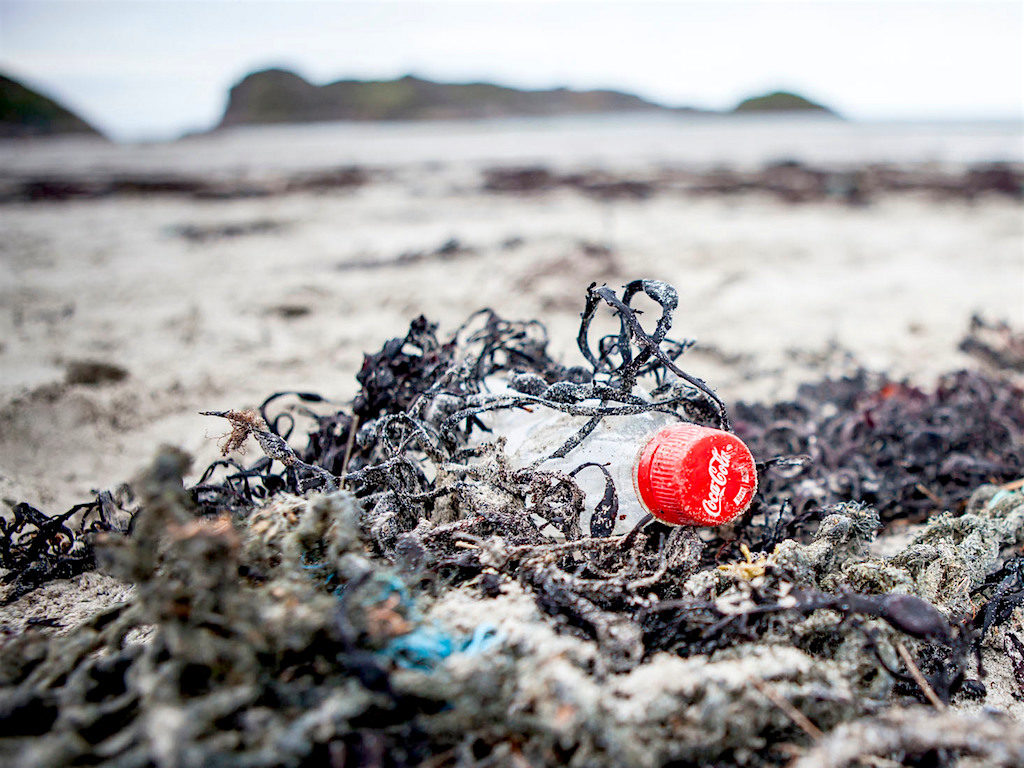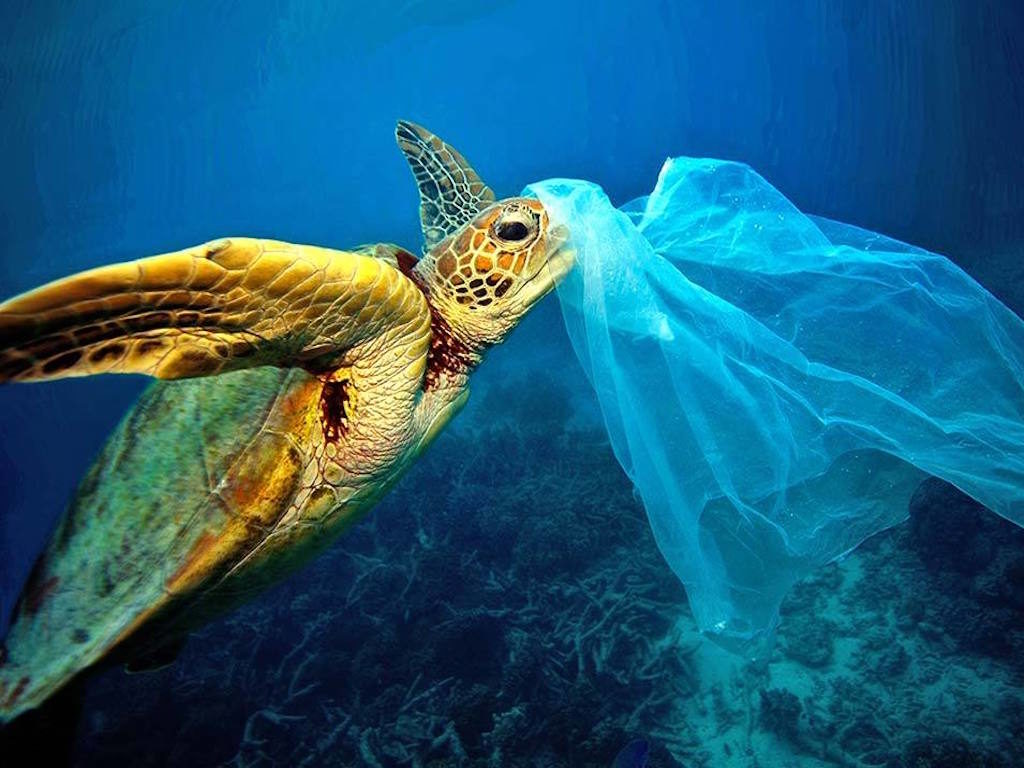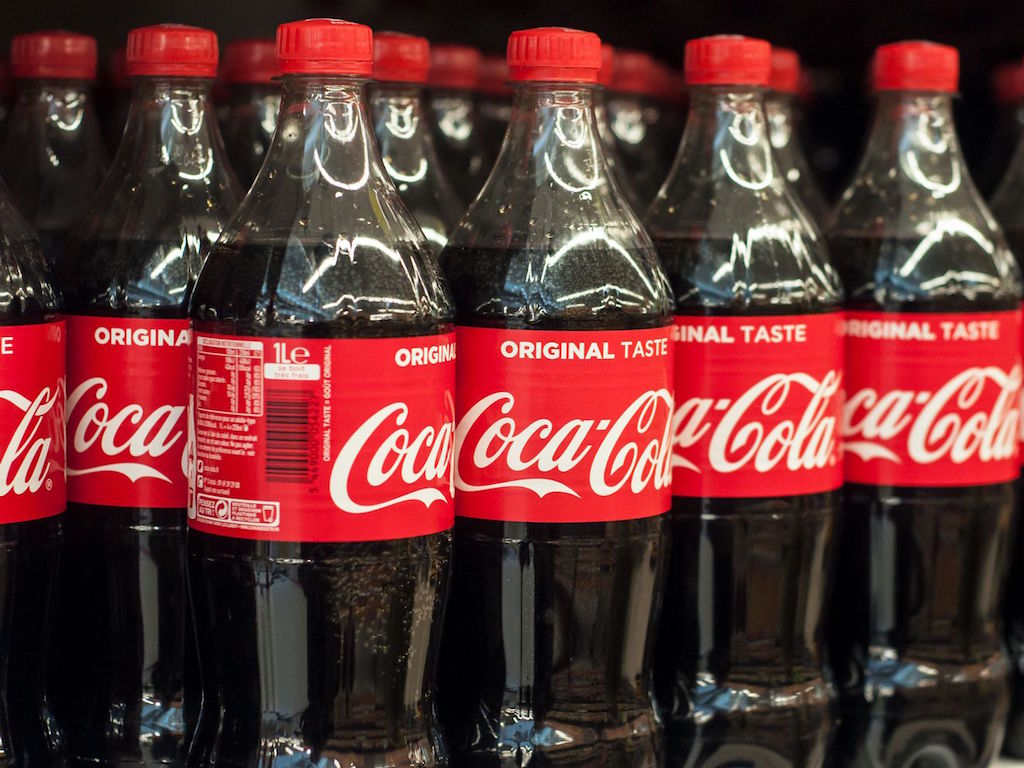4 Mins Read
Plastic bottle giant Coca-Cola has just defended its single-use plastic bottle at the World Economic Forum (WEF) in Davos, Switzerland. Citing customers thirsty for drinks packaged in lightweight, disposable plastic bottles, the Coca-Cola senior vice president insisted that the company has to accommodate these demands, and therefore will continue to use plastic bottles. This comes despite the fact that the recent WEF risks report compiled by world leaders listed climate crisis issues as the top 5 concerns to focus on for the year, and in defiance of the criticism that environmental groups have slammed the corporate giant with last year.
Speaking to the BBC, Coca-Cola’s senior vice president Beatriz Perez insisted that their consumers still want single-use plastic bottles. Shifting the responsibility and defending the company’s skyrocketing plastic bottle waste, Perez said that “business won’t be in business if we don’t accommodate consumers” and therefore will not have plans to abandon single-use packaging anytime soon.
The multinational beverage giant makes an estimated 3 million tonnes of plastic packaging each year, which amounts to roughly 200,000 plastic disposable bottles every minute. Despite this, the company wants to place the onus of change on everyday individuals, who will apparently begin shifting towards more sustainable alternatives “as we change our bottling infrastructure, move into recycling and innovate,” said Perez.

Read: The global plastic crisis in 10 numbers
Coca-Cola’s blame-shifting and defence for their plastic waste responsibility at Davos comes as the WEF labels environmental issues as the top risk priority this year. In their annual risk report, the climate crisis took over all five spots of the major concerns that companies and world leaders need to take action on this year. Drawn up through a survey of over 750 of the world’s elite decision makers, including multinational CEOs, the report highlights the failure to mitigate and adapt to the climate crisis, resource depletion and human-induced environmental disasters, which would include the mounting plastic pollution in our landfills and oceans.
The reality is that Coca-Cola is at the epicentre of our global plastic crisis. Last year, a global audit by the campaign Break Free From Plastic named Coca-Cola the world’s top plastic polluter for a second year in a row, behind other beverage giants Nestlé and PepsiCo. In response to global backlash, the company announced that they are innovating to make bottles from ocean plastic waste, but critics argue that a much more effective measure is to ditch plastic bottles entirely.
Indeed, instead of coming up with new innovations that cannot yet be scaled up to make an effective positive impact on our planet, if Coca-Cola simply stopped packaging their products in single-use plastic bottles, a whopping 3 million bottles would be saved each year. Plastic packaging is already littered all over our shorelines, being washed into microplastics that harm our marine life and enter back into our food chain. The reality is that neither recycling, or switching to an alternative “more sustainable” material can cure the mounds of plastic pollution that is generated by our disposable culture.

Read: Glass or Plastic – which is better for the planet?
Besides, as awareness about the severity of our global plastic crisis grows, the question remains about whether Coca-Cola’s claim is true, that consumers still crave plastic bottles. Civil society groups and grassroots campaigns have repeatedly signalled to governments and businesses that changes must be made. Communities in Java, Indonesia, for instance, have been suffering from toxic fumes of burned plastic being used as cheap fuel. Last year, global annual campaign Plastic-Free July attracted a record-breaking 230 million participants pledging to ditch plastic entirely for the month.
As a giant multinational with the capacity to make huge changes to reduce plastic waste at an enormous scale, citing consumer demand for plastic bottles is simply not good enough. As consumers, it’s important that we show our stance by boycotting bottles to make our voices finally heard.
Lead image courtesy of NeydtStock / Shutterstock.




